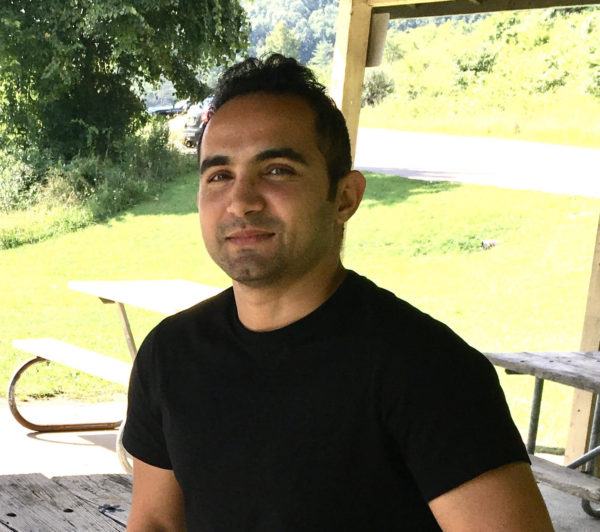 What is your position or role in the DESI project?
What is your position or role in the DESI project?
I am a postdoctoral researcher at Kansas State University. Working closely with the Galaxy and Quasar Clustering, Target Selection, and Imaging Validation working groups, my role has centered around the characterization of observational systematic effects since 2016.
Where were you born and where do you live now?
I was born in Hamaden, a city in the midwest part of Iran. I spent a few years away from home for college, before coming to the states to pursue a PhD degree in Physics at Ohio University. I live in Columbus, Ohio now.
What do you do as part of DESI?
I develop methods and codes based on statistics and machine learning to remove the effects of observational systematics, such as those caused by Milky Way extinction. The objective is to enable robust and unbiased measurements of cosmological parameters.
What is the most interesting or exciting thing about your job?
The most interesting aspect about my job is that I get to collaborate with so many talented scientists from all over the world, and this opportunity has enhanced the caliber of my research in many ways.
Any advice for an aspiring scientist?
Learn computer programming and never be afraid to sign yourself up for new challenges; presentations, observations, or public outreach.
What do you do for fun?
I do love cooking for myself, playing pool with friends. I also like racing but unfortunately, I cannot afford a super car at the moment.
If you weren’t a scientist, what would be your dream job?
As a kid, I was curious about the mechanics of automobiles. I even considered choosing Mechanical Engineering as my major in College. If I had not pursued physics, I would have loved to become a mechanic, like Carrol Shelby, building an engine.
What excites/interests you most about DESI?
DESI is one-of-a-kind collaboration which is going to revolutionize modern cosmology in the 2020s. I am really excited about the massive amount of data and all the science that DESI provides and enables.